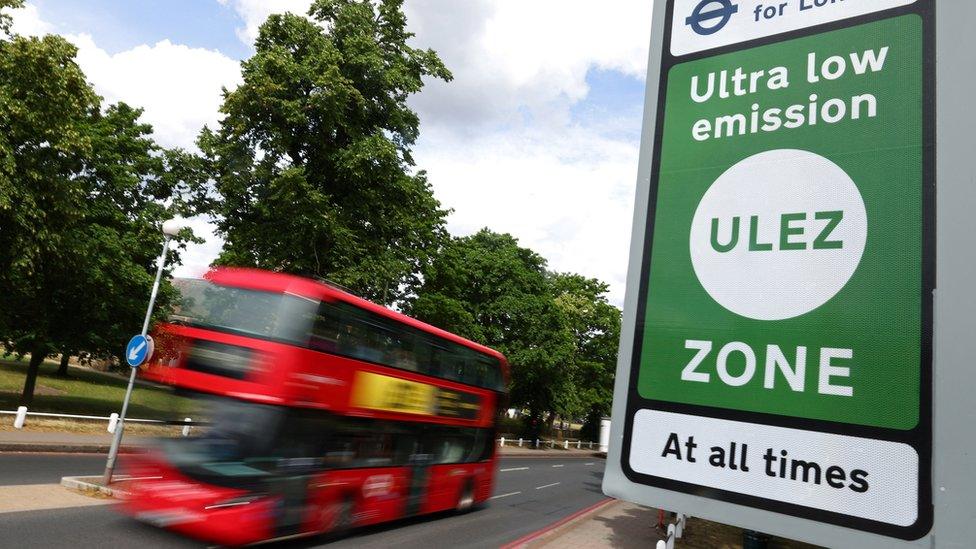Ulez: What does it mean for counties around London?
- Published
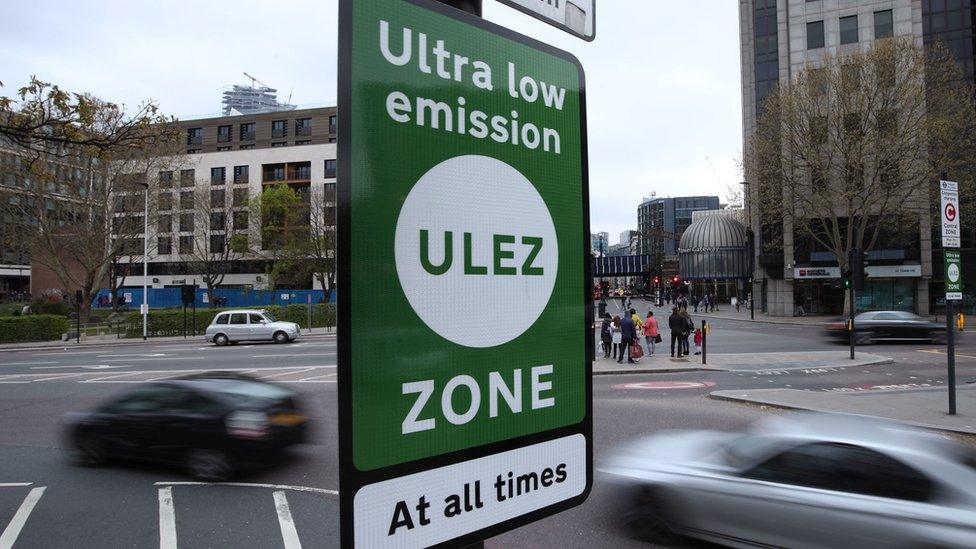
The expansion of London's ULEZ comes into effect today
London's Ultra Low Emission Zone (Ulez) has come into force in all London boroughs - but its impact is being felt far beyond the capital. Businesses in Northamptonshire, Milton Keynes and Bedfordshire talk to the BBC about how it will affect them - and changes they have made to prepare.

'Our customers won't be happy'
Ulez is designed to tackle air pollution by charging drivers of older vehicles to enter specific areas.
Muhammad Riaz is director of 24/7 Taxiline in Milton Keynes, which has a fleet of about 40 cars and employs 20-30 drivers.
He said the company was unhappy about the Ulez expansion.
"We go to London every single day, maybe five or 10 cars. People are going to the airports or into the capital," he said.

24/7 Taxiline in Milton Keynes said it could not afford to upgrade its cars.
Mr Riaz told the BBC the company would put its prices up to cover the cost.
"Customers are probably not going to use us again, or they will be unhappy about all these charges", he said.
He agreed that tackling air pollution was a "really good idea" but said the company could not afford new vehicles.
"Car prices are very high and it's very difficult to get a new car. Most taxi drivers haven't got all electric cars or the latest model, because they can't afford them these days."
What is Ulez?
A £12.50 daily charge applies for driving in the Ultra Low Emission Zone, commonly referred to as Ulez, if the vehicle does not meet certain emission standards.
Boris Johnson decided to introduce it when he was the Mayor of London. It then came into effect in April 2019. By this time, Labour's Sadiq Khan had become mayor.
Initially it covered the same central area as the Congestion Zone, before widening out to the North and South Circular roads in 2021.
In November 2022, a further expansion to cover all London boroughs was confirmed. This has now come into force.
Transport for London has an online 'Check your vehicle, external' tool where people can enter their number plate and the country where their car was registered to see whether they will need to pay the £12.50 per day Ulez charge.
Cars need to meet minimum emissions standards, external to avoid paying the charge.
Petrol cars generally meet the standards if they were first registered after 2005, while diesel cars generally have to be newer than September 2015.
'It's a step in the right direction'
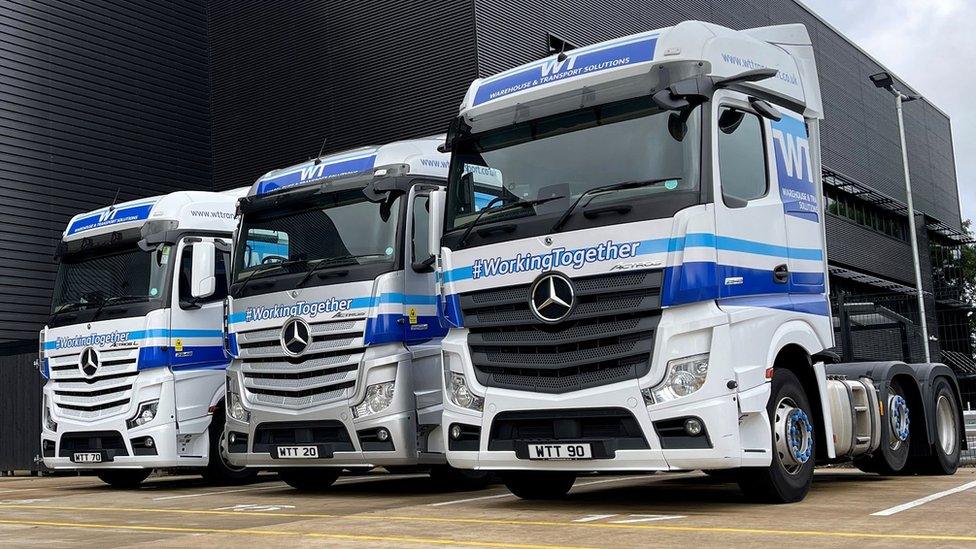
Northampton-based WT Transport purchased vehicles that comply with low emission zones
WT Transport is based in Northampton but operates across the country, with a fleet of about 45 HGVs.
Business development director Jason Lister said: "We send on average maybe four or five vehicles a day into central London, so we knew this was coming."
He said that, coupled with a desire to be more sustainable, spurred the company to upgrade its fleet over the past five years.
All its vehicles are now Euro 6 standard, which makes them Ulez compliant.
That came at a "significant cost to the business", said Mr Lister.
He said each new vehicle cost between £90,000 to £110,000.

Jason Lister said lowering emissions was important to his business
Mr Lister said that lowering carbon emissions and air pollution was a priority.
"It is tough, and the investment for businesses is difficult right now, but the overall impact on the globe is really important to me and to us as a business, so I do think it's a step in the right direction."
'It's going to hit us very hard'
KK Arkhurst was worried that his maintenance and repair business, Grace Truck and Bus Ltd, would suffer from the Ulez charges.
He is based in Luton but most of his work is within the M25.
"I'd say 95% of our customers will be within the expanded zone - places like Bushey, Wembley, etc.," he said.
"And that's going to hit us very, very hard."
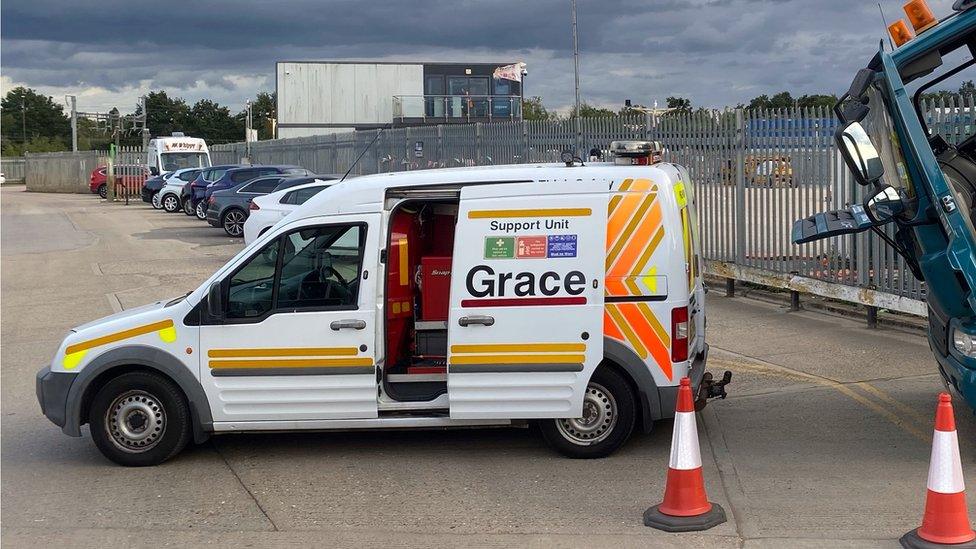
KK Arkhurst says the cost of replacing his van would be around £50,000
Mr Arkhurst said he had looked at replacing the two vans but the cost of even a second hand van was too expensive due to high demand.
"The customer has already complained about paying London rates, so it's going to be very difficult to increase the rates," he said.
"I believe that we all have responsibility to reduce emissions, but I believe the way that they're going about it is wrong. It's clobbering the hard working man and woman."
James Murray, editor of the Business Green website, external, said "air quality initiatives have pushed some businesses to upgrade to newer vehicles earlier than they would have liked, resulting in some additional costs that could prove particularly onerous for smaller businesses."
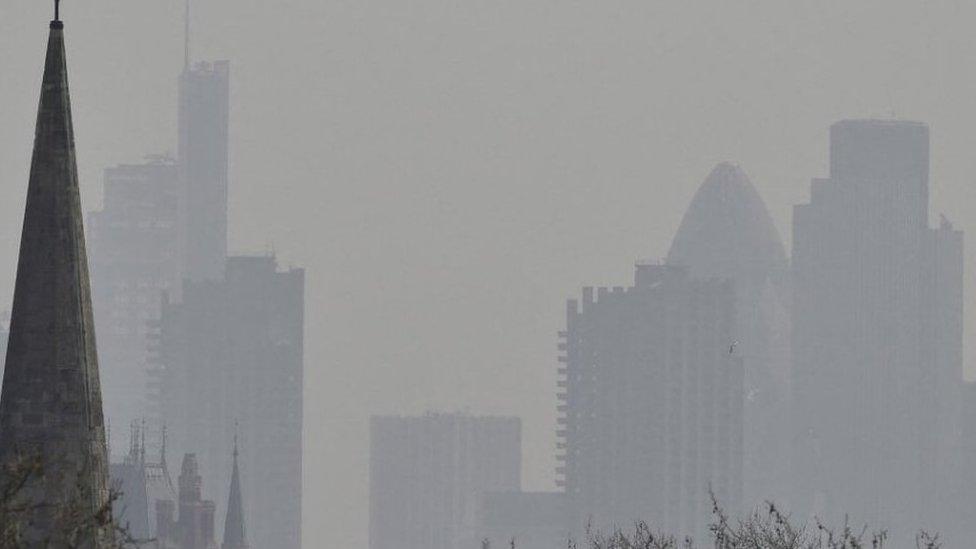
Some councils surrounding London are opposing the scheme, which is designed to reduce air pollution.
Some councils in the surrounding counties are opposing the scheme, and are refusing to put up signage.
Councillor Holly Whitbread of Essex County Council said expanding the zone would disproportionately affect key healthcare workers who commute into London boroughs.
And the leader of Hertfordshire County Council Richard Roberts told the BBC that Ulez was "unfair and people in Hertfordshire don't want anything to do with it."
The London mayor's office said the expansion was needed to tackle air pollution, congestion and the climate emergency.

Follow East of England news on Facebook, external, Instagram, external and Twitter, external. Got a story? Email eastofenglandnews@bbc.co.uk, external or WhatsApp us on 0800 169 1830
Related topics
- Published12 July 2023
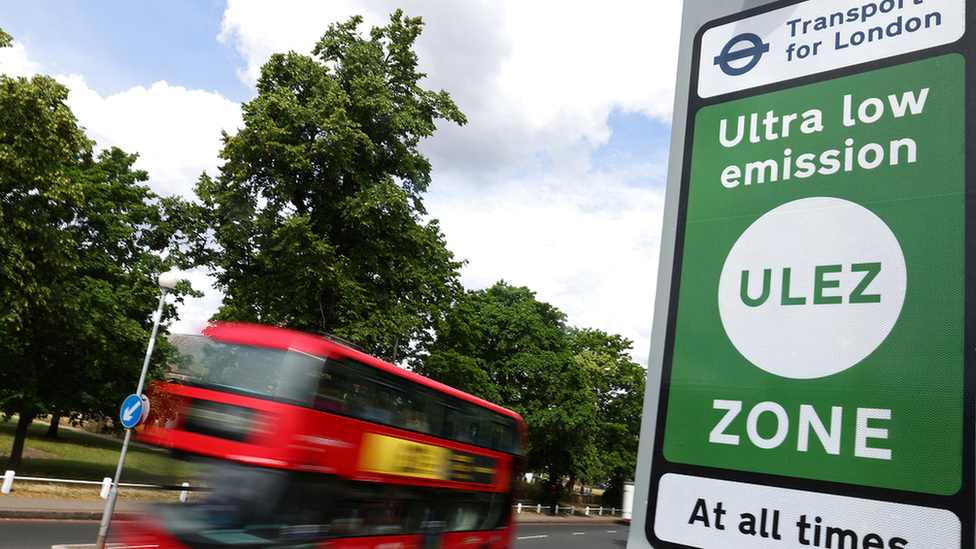
- Published20 February 2023

- Published28 July 2023
